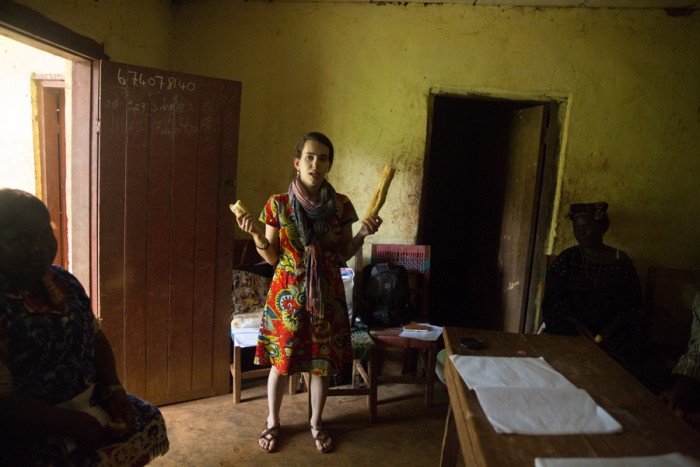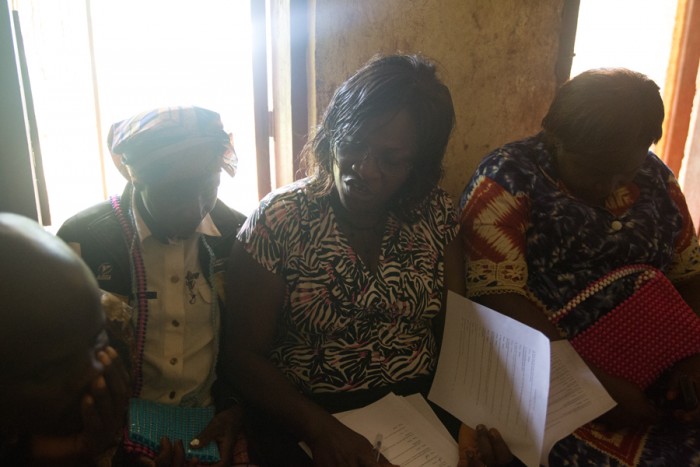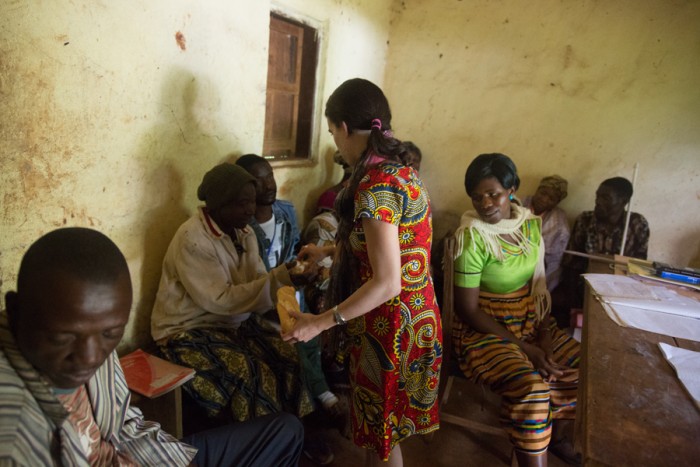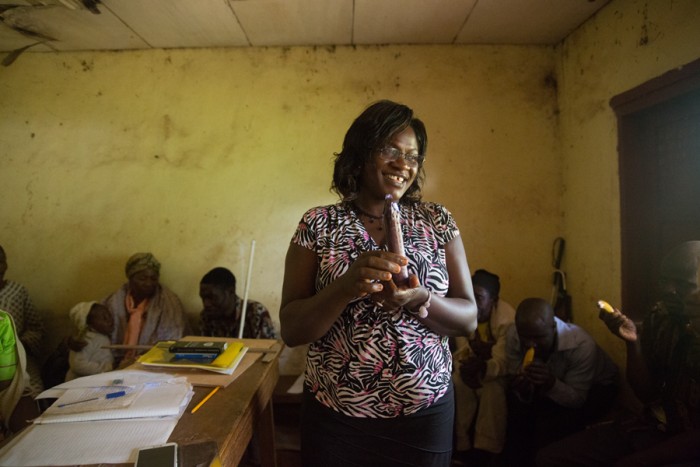September 1st, 2016 by Rachel | Tags: Disability, Peace Corps | No Comments »
A couple weeks ago, one of my work partners, Regina, and I took an hour ride to a village called Belo, to teach a group of persons with disabilities about HIV Prevention and Sexual Reproductive Health. When we arrived there, we received a warm welcome from the president of the group, but the members of the group did not greet us with big open arms. They expressed dismay that we were not providing them food and also money to pay for their transportation to see the presentation even though the presentation was scheduled at the same time when they have a regular meeting, which meant that they would have already had to go to the meeting if the presentation was not happening. Regina eloquently explained to the group that she and I are both strictly volunteers who work without pay (*Disclaimer* Peace Corps does although provide compensation for all volunteers to cover living expenses) and that we’re paying with our own money for transportation to come to Belo.

Throughout the HIV Prevention presentation, participants were talking and laughing and disrupting the presentation. The scene resembled a high school classroom filled with rowdy students. After the HIV Prevention presentation, many members said that they did not want the Sexual Reproductive Health presentation but the president did want the presentation. Regina articulated to the group that even if they think the information would not be beneficial to them, they should be sharing the information with the community who could greatly learn from them. While the president spoke with the group to try to change their mind, Regina and I both discussed and agreed that those who do not want to be part of the Sexual Reproductive Health presentation can leave and those who want it can stay. To call it off would have not been fair to those who wanted the presentation. The entire group then agreed to do the Sexual Reproductive Health presentation. They continued to be impolite. There were moments when I felt like I was a high school teacher as Regina and I paused when they were becoming loud or showing that they were clearly not paying attention. When I was doing the family planning demonstration using bread, they asked if they could eat the bread. I told them, “Yes, only if you will be quiet and listen.” At the end of the presentations, a man stood up and asked me, “What is your relationship status?”
While all 16 participants took the pre- and post-test for HIV Prevention, only 13 of them took the pre- and post-test for Sexual Reproductive Health. Three chose not to take the test because they said they were hungry. While those three were probably legitimately hungry because persons with disabilities do face financial barriers in being able to live comfortably, I provided them with bananas and some bread paid directly from my own personal funds. Most did well on the HIV Prevention pre-test as everyone scored 100% or missed one or two answers. While only four scored 100% on the pre-test, nine scored 100% on the post-test and so, this means the workshop was an opportunity for them to hone their knowledge on HIV prevention. On the Sexual Reproductive Health pre-test, no one scored 100%. Everyone scored below 90% and four scored below 60%. On the post-test, two scored 100% and one scored 97%. Everyone scored above 60% which means that a modest gain in knowledge has been demonstrated.



The situation I encountered at the workshop brings up the question of attitudes, money and international development. I have been largely blaming colonization and Europeans and Americans for creating a mentality of the locals who expect to be given money and things without work. While the foreigners had good intentions which was to help the poor, it set a bad precedent. It has a created a culture and mentality among the locals, which is that they have been led to believe that the foreigners, in particular white people, have money and they give free money and things for doing no work. As a result, some locals believe that they can receive free money and things and not do any work. This in turn leads to lack of motivation to do work. The foreigners had really created a culture where the locals saw it was better to give a fish and feed for only a day rather than teach how to fish and feed for the rest of the life.
Changes however have been happening in international development world. Some grants nowadays have policies stating that the locals must make a certain percentage of contribution in order to receive and use the grant. Peace Corps’ grant programs such as PEPFAR has this such policy. If a volunteer wants to acquire a PEPFAR grant, the community must contribute at minimum of 25% of the total cost of the project. This is a very good policy because it motivates the locals to do work and helps the locals feel empowered and important. It is also sustainable because the locals feel more motivated to keep up with the project and maintain it because they have put in their own money. They also learn new skills from the project as they participate in the work too and as a result, they can replicate the project on their own. I also believe that capacity building is even far more sustainable than even giving money and things in general. Training people new skills can truly help people become self-sufficient and provide them the needs for the rest of life.







